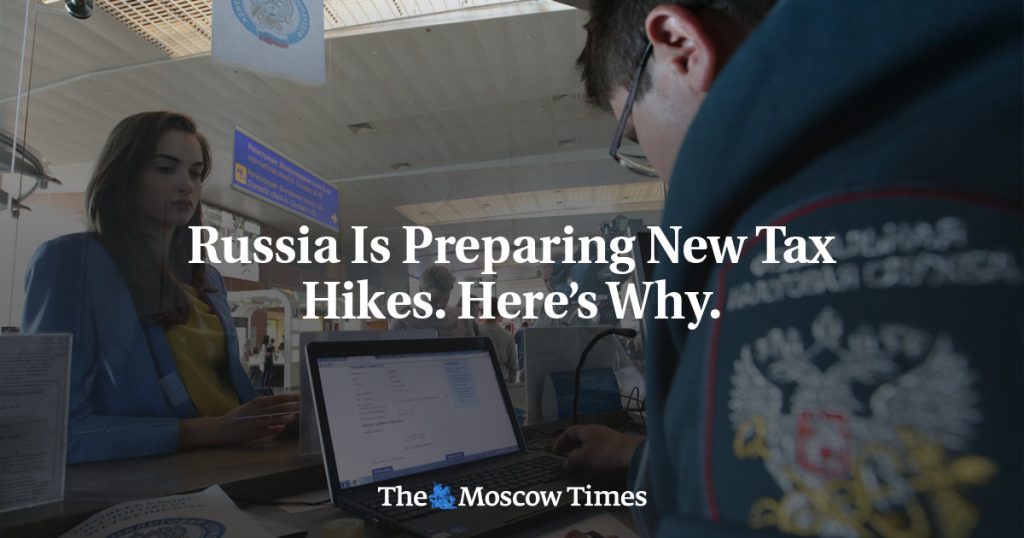Russia’s Finance Ministry has proposed a major tax reform plan that aims to introduce a progressive tax system and increase corporations’ contributions to the state budget. This move is expected to generate nearly 3 trillion rubles per year, providing much-needed revenue as government spending on the war in Ukraine continues to rise. President Vladimir Putin has expressed support for the reform, stating that the tax system needs to be made fairer, with higher earners and corporations contributing more.
The proposed changes include introducing income tax brackets that would tax higher earners at rates ranging from 15% to 22%. Those earning less than 200,000 rubles per month would not see any tax hike, and men fighting in Ukraine would also be exempt from the increases. The Finance Ministry estimates that around 2 million people, or 3.2% of Russia’s working population, would see their taxes go up under the progressive plan. However, the current tax rates for earnings derived from assets like savings and stock shares would remain unchanged.
The reform would also raise the corporate tax rate from 20% to 25%, with the additional revenue being allocated to state programs supporting business, technology, and infrastructure projects. While analysts predict that the increase in corporate taxes may impact the stock market, it could have a positive effect on bond markets by helping manage the state budget deficit without significantly increasing inflation. The Finance Ministry estimates that the tax reform plan could generate around 2.6 trillion rubles for the state budget in 2025.
The decision to raise taxes comes as Russia faces budget deficits due to increased government spending and a decline in revenue from energy sales to Europe. Surging wages and an overheating economy have also contributed to the need for additional revenue. Analysts believe that the political consensus around the necessity of generating more revenue means that the proposed tax increases are likely to pass. The government’s focus on military spending, which is expected to account for around 40% of all government spending this year, further underscores the importance of boosting revenues.
As lawmakers in the State Duma work to pass the tax reforms by the end of the current parliamentary session, businesses are urging for measured discussions to ensure that the changes take effect smoothly. While industry groups will have the opportunity to provide input on the proposed changes, analysts believe that the reforms are likely to be implemented given the political consensus on the need for additional revenue. The tax reform plan reflects a shift away from the flat income tax rate that has been in place for two decades and underscores the government’s efforts to address budget deficits and support economic stability in the face of external challenges.


